Column Vietnam
Cinema paradiso [3/3]
Cinema paradiso
Viet Nguyen
A family in film

PHOTO: 6 – TPD Students in a kick-off event
Every year TPD organize about 12 to 15 classes. Documentary and fiction short film classes are the most enrolled. In 2014 TPD opened YOU CAN ACT program. It is an acting class for students over 16 years old, teaching basic acting lessons for film and theatre.
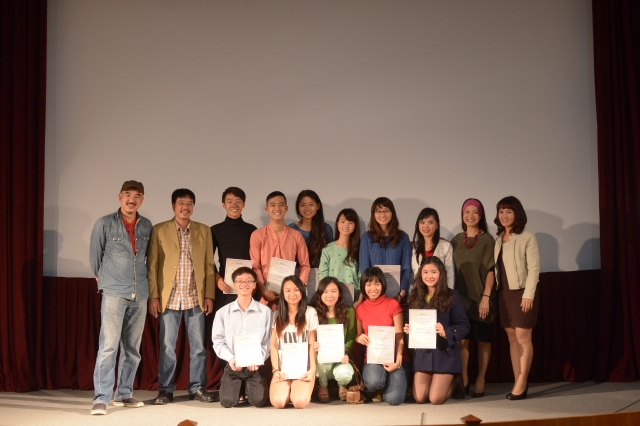
PHOTO: 7-Graduation of the 1st Acting Class at TPD Centre

PHOTO: 8- A short performance by students of Acting Class
In the same year, TPD connected with schools to organize film workshops during summer break for elementary and middle school pupils (from 8 to 15 years old). These workshops were later developed into a program called Teen Filmmakers, a special intensive workshop organized in summer for teen to learn filmmaking in a fun way.
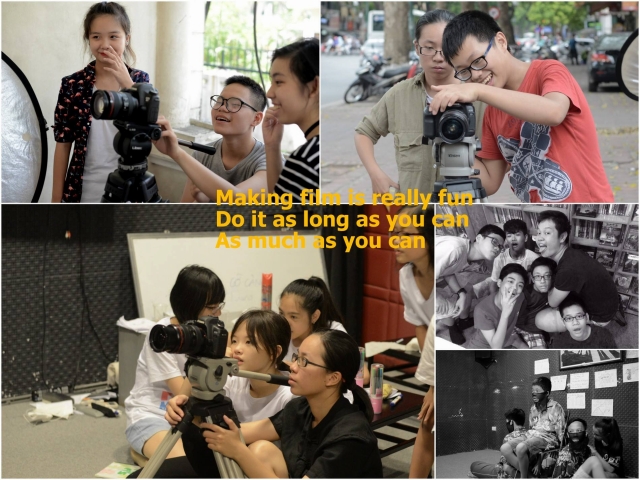
PHOTO: 9- Teen Filmmakers classes
With all the expansion in programs and in numbers, TPD gradually develop a community of film lovers and filmmakers in Vietnam. First, the students become friends by learning about filmmaking together. Second, by connecting students via online networks like Yahoo Messenger and Facebook, TPD officers created a forum for everyone to communicate with others and share aspirations. This community is of course called: We Are Filmmakers or in short WAFM. Until now, the number of WAFM members is nearly 1000 people connected on Facebook. This is definitely the biggest filmmaker community in Vietnam. And every August, the whole community would gather to celebrate the Golden Lotus Bud award.
The Golden Lotus Bud Awards is an annually award ceremony held by TPD Center, aiming to honor the outstanding short films made by WAFM students during that year. First taken place on 10th April 2010, Golden Lotus Bud Awards has become one of the most prestigious awards for young Vietnam filmmakers. Every July/August, the Awards ceremony would return and attract the interest and support of Vietnam cinema policy makers, press, leaders in the culture, art fields and film aficionados.
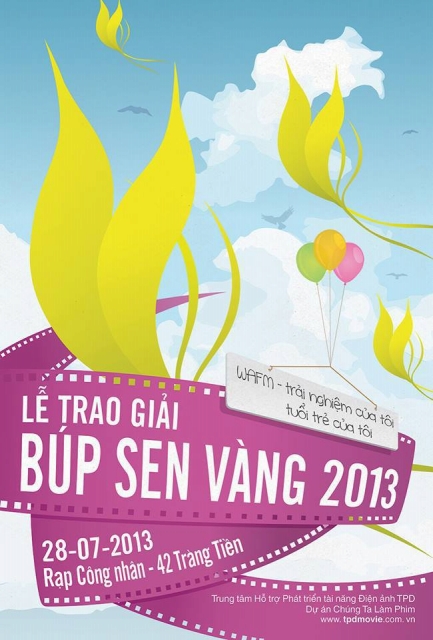
PHOTO: 10-Poster of Golden Lotus Bud Awards 2013
However, the community is very active even outside of award season. Every weekend you can find a group of youngsters hiding in TPD to “escape reality”. They meet often to watch films together, to talk about films and plan on their next short film. Sometimes, they just gather in a hot summer day to drink iced tea and sing together with their guitar. It feels like they are siblings or relatives in a big big family, though they come from many different backgrounds. The connection of all these people is that they all love Cinema.
It is the love that keeps me at TPD for the last seven years. There are friends that I had known from day one and now we are still helping each other’s projects. There are friends that had moved to other fields, even to other countries, but they still keep in touch with TPD family and support our projects enthusiastically. We, the senior in WAFM, always welcome new members to the centre, to the community and help them get acquainted.

PHOTO: 11- Outdoor activities for the young filmmakers
For me, I have been given so many resources and opportunities since my first class at TPD. I was lucky enough to be assigned the director of the graduation film for fiction film class. The film later on won the Golden Lotus Bud award in 2010. After that I followed professional filmmakers in TPD to learn by working in film projects both inside and outside of TPD, which equipped me with a valuable skillset for my future career.
There are other friends who also benefited from TPD filmmaking classes like I had. Do Quoc Trung, student of class H4, went to film school in Hanoi later and made short films that won many awards, graduated with highest grade from Cinema university and now working at TPD as a teacher for fiction film class. Ngo Dai Trang and Do Phuong Trang, students of class H7, graduted from non-film universities but now working actively in commercial production and short film production. They are outstanding members of WAFM, and they have guided junior members for the last few years, together they are making the community a place of “give and take” spirit. The more we give, the more we receive.
A new challenge every day
Building a ship is hard, but leading the ship across the sea is harder. For 8 years, TPD centre has overcome many difficulties and challenges. Part of the reason are the dedication, patience and strong beliefs of TPD managing board. The founder of TPD and WAFM, director Bui Thac Chuyen is a great motivating person. The idea of teaching basic filmmaking to young students was conceived and developed by Mr. Chuyen and colleagues. He invested lots of his resources into TPD, for a stronger cinema of Vietnam in the future. With charismatic leadership, broad knowledge of arts and education, and a thoughtful mind of human development, Mr. Chuyen had led TPD overcome the tough early years.
However, for a youth-based community, there must be a youth leader – a position that Mr. Chuyen cannot cover. A youth leader that is caring, enthusiastic and sometimes a bit wild at heart. That is the position of Mr. Nguyen Hoang Phuong, the managing director of TPD, the “big brother” of We are filmmakers. Mr. Phuong started as a cinephile, then a film critic, then a film library officer, then the youth leader of WAFM. He has the longest working time with TPD among the officers. No one could understand TPD and WAFM better than Mr. Phuong. He has been here since the first film class, guided the very first students of the centre. At the moment, he still keeps developing new program and enhancing current programs.
Growing up always comes with chances. Increasing numbers of members, decreasing numbers of graduation films, unstable team of teachers, depreciation of utilities, these are just to name a few obstacle TPD is facing at the moment. Though the centre is still running its classes in a smooth schedule, the output of these classes are less predictable than in the past. Popularity brings more students to TPD, but it also brings more diversity and requires more management efforts. The limited staffs would face new challenges coming from both inside and outside. Perhaps, it’s time for TPD to slow down on expanding and focus more on in-depth development, or it has to consider expand on its budget and personnel too.
Seven years ago, there is only one place to go study fundamental filmmaking outside of Cinema universities – it’s TPD centre. Now, there are two or three other places with short course on filmmaking, but TPD centre is still the most recommended. Many successful film projects received supports from TPD since the beginning, many emerging directors graduated from this institute, many of award-winning films were conceived under its roof. TPD and We Are Filmmakers have been a place to go for every youngster who dreams to become a director, an actor, a scriptwriter. Even older people now can find a suitable class at TPD.
We can say, TPD and We Are Filmmakers project have achieved the goal at the outer circle: to provide film education to more people. There are still inner circle goals that are waiting to be fulfilled. Until then, we will still keep making films, keep rolling.
written by : Viet Nguyen
Cinema paradiso [2/3]
Cinema paradiso
Viet Nguyen
My first film class, my first short film
Class H7 was the 7th short documentary class in TPD, started in September 2009. (Now the latest class code is H64). Short documentary was the start for every student in TPD from 2008 to 2012. It was a fundamental course on making short documentary film with length of 10 to 15 minutes. It was 12 week long, with one section a week at weekend. Each section lasted three hours. And it was totally free. TPD requires no financial contribution from learners. The centre provides classroom, educational utilities, learning materials (films, clips, books), even camera equipments (handy cameras). Someone could say this is a dream class. But what we learnt first, was reality.
Reality is the subject for documentary filmmaking. Before TPD class, I had only seen some plain science documentaries on TV and never liked them. But the class changed my point of view about this genre, and brought me closer to the real beauty of life. I think it helps a lot for any filmmakers to start with documentary. It teaches us how to observe the world surrounding us, how to capture the scenes of life, and more importantly, the portraits of people.
During 12 weeks, our teacher – Director Nguyen Huong Le – who was working as a TV director and documentary filmmaker – changed our thoughts about reality, or to be more precise, the way we see the reality. She rarely just lectured, but shared her knowledge and her tremendous experiences of making films about real people, existing lives and on-going struggles. The class had a specific agenda and a well-written program for the teachers to follow and add in their own experience and advices. The teachers at TPD are not formal, academic type. They are all active filmmakers who had their film education in film schools in Vietnam and abroad, who had made a few films before they worked with TPD. Therefore they have a lot of stories and experiences. We learnt the art and the craft of documentary filmmaking by watching short and long documentaries, shooting homework videos, doing research and writing a script for our first film. That was also for the graduation film, which is a requirement if any student wanted to go on to learn the next course on fiction short film in TPD.
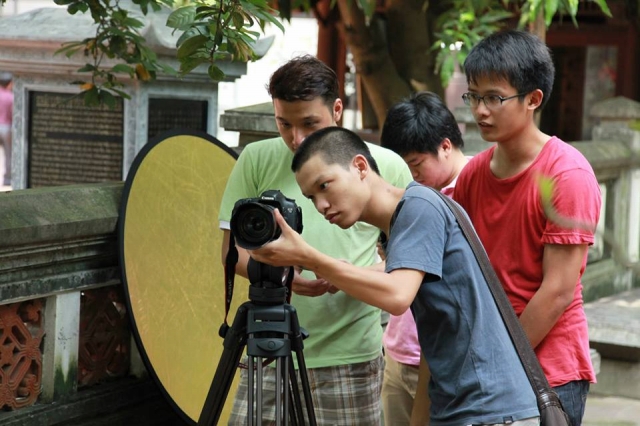

PHOTO: 5-Poster of a short film made by We Are Filmmakers
The style of filmmaking that TPD taught us since day one is independent filmmaking. Each student had to make his or her own short film, with a team of one member: only themselves. So I had to do research myself, write the script myself, shoot the film myself, and edit it to the final version all by myself. The teacher acted as a guide, an advisor when you need, while the classmates played with your emotions by giving mixed comments every time you showed the dailies or rough cuts. But it was great fun, a kind of joy that I had never had before. Moreover, while I made my graduation film – a short film documenting a day of my mother – I even had the chance to understand more about my family, my mom. There are things that I heard from her for the first time, things that I had never seen because I had never followed her from morning to evening to film her life. But because of the class, I made myself an observer and a filmmaker. The film was just so-so, but I am happy I had finished it. It was a life-changing experience for me to learn this documentary class.
For some other classmates, it happened to be the same outcome as mine, but it is not the case for everyone. There were half-way students who attended only 4 or 5 weeks then disappeared. Some students survived until the last week, but they couldn’t finish their graduation film. Some students just edited a poor cut from what they had shot and turned in without dedication. In the end, only half of the students or less finished their films. I think it’s a normal thing for any subject to have this situation, needless to say a challenging task like making a documentary. For TPD, it was a chance they had to take, especially in the first few years of We are filmmakers project. But the great thing about TPD is: it keeps moving forward with the ones who finished the films with their hearts.
Cinema paradiso [1/3]
Cinema paradiso
Viet Nguyen
Autumn 2009, inside the campus of National Economics University (NEU) of Vietnam, Every student was hurrying to their morning classes, holding thick books on their arms. Only a few students noticed a thin guy kneeing on the ground, pointing a small camera to something even smaller on the gray surface of the concrete ground. That guy is holding the camera so stably and for such a long duration that he looked like a statue with a camera. The object of that “statue” was a yellow leaf from a nearby tree, and that camera was one of those Canon compact “tourist” models. And that strange guy was me, making my first homework for a film class. That is one of the first images showing up in my mind when I look back at how I started to learn filmmaking.
In my country – Vietnam – the current number of film schools are almost the same as that of 7 years ago. There are only two universities for Cinema and Television in the whole country of nearly 90 million people. That means the chance you could get into a film school to learn filmmaking is very low, because each school only accept 15 to 20 students every year. If you want a slot, you need to be outstanding and talented, or your parents must be established artists, or your family need to be financially capable for the entrance fee. I belonged to neither of those group. I ended up in a popular university among 300 economics schools in the country, which made my family happy and my friends congratulative, but made myself a bit confused: How could I become a filmmaker, now?
Then I heard of We Are Filmmakers.
The origin of We Are Filmmakers – a free film education
The Center for Assistance and Development of Movie Talents (TPD) was established by Vietnam Cinema Association on 15th August 2002 with the purposes of designing and operating programs that assist and develop movie talents and performing activities for the development of Vietnam cinema. The mission of TPD are advising life skills through making movies for the youth as well as supporting other cinema activities. TPD has the biggest cinema library that is open for public viewing, it’s called Cinema Space. The library has more than 3000 films from Vietnamese and international cinema, plus film books and magazines both in Vietnamese and other languages. TPD also receive the support from Ford Foundation (from 2003 to 2010), and has been the partner of numerous culture and education institutions, both domestic and foreign, such as The British Council, Goethe Institut, L’espace, renowned film institutions as USC (USA), London Film Academy (UK), National Film School of Denmark, Femis (France), Megastar Media, Galaxy Studio, Panasonic…
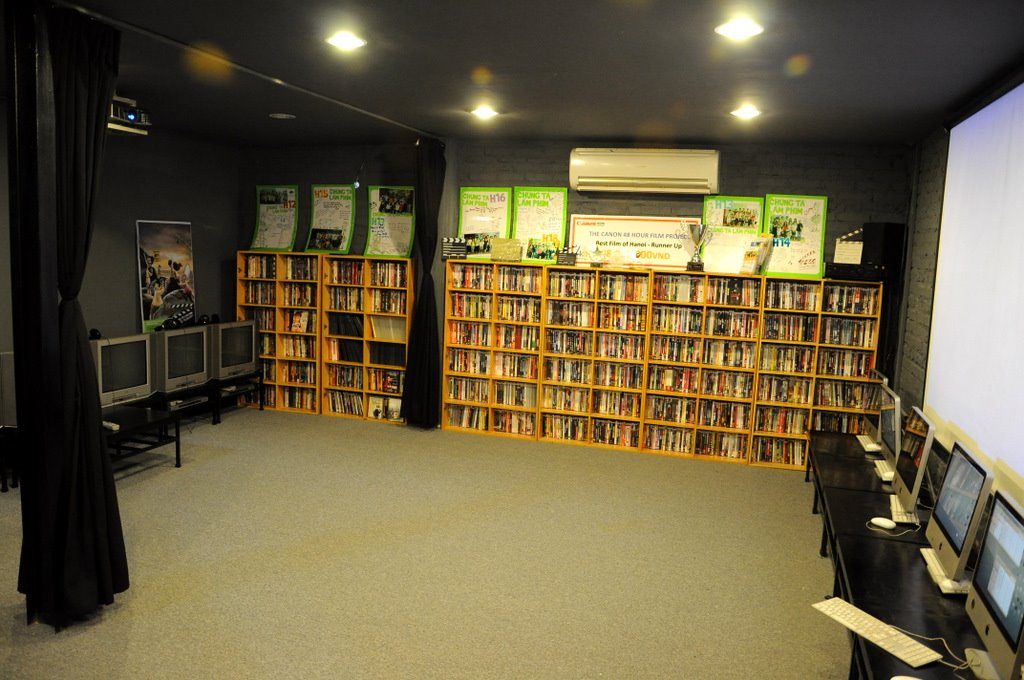
PHOTO: 1- Cinema Library in TPD Centre

PHOTO: 2- TPD centre logo
It was in 2008 that TPD first launched the demo program of We Are Filmmakers Project in Hanoi, under the authorization of Vietnam Cinema Association and funded by Ford Foundation.
TPD described We Are Filmmakers as below
“Nowadays, the scene of a person holding a handy camera doesn’t appear to be outlandish at all. Media has become the communication means of the 21st century. Utilizing media language is an essential characteristic of a modern human. The need for comprehending and approaching ‘media’ among school pupils and students is legitimate and considerable. That is our motivation to start the project We are filmmakers (WAFM).
PHOTO: 3- Poster of We Are Filmmakers film project
What are We are filmmakers project? They are courses on life skills and cinema perception made available via sharing knowledge about cinema and making movies together.
What do students receive? Life skills and ways of comprehending cinema through cinema and filmmaking technique knowledge.
Who are the teachers? Well-known Vietnam filmmakers such as Bui Thac Chuyen, Phan Dang Di, Nguyen Thi Kim Hai, Phan Huyen Thu, Nguyen Huong Le, Nguyen Huu Phan, Pham Thi Hao, Bui Kim Quy.“
(Source: TPD Introduction, 2012 edition)
With its bold vision and generous support from sponsors, TPD created something that was opposite in nature to the film education provided in the film schools in Vietnam at that time: a fundamental, hands-on, student-oriented program that was completely free of charge. The next question was: how could they deliver this gift to the ones who needed it, or more precisely, to the ones who deserved it?
As the name suggested – The Centre for Assistance and development of Movie Talents, TPD always search for the young voices that have potentials for the future of cinema. The focused group of We are filmmakers project were teenagers and high-schoolers. (Later it expanded the age group) In order to select the most suitable learners for the program, TPD organized recruitment tour around all middle and high schools in the central of Hanoi. The tour could be mistaken as an election campaign because the recruiters often stood in front of the whole school giving inspirational speech, showing banners and handing out posters to pupils. After that, the interested audiences (normally one hundred percent of pupils) were offered to take a fundamental paper test to see if they were suited to the filmmaking program, right in the school yard or in the classrooms. The test was a set of questions about interest to arts, to cinema, the self-taste, the imagination and storytelling energy of the pupils. That was just the first round of the selection process.
After TPD officers scoring the paper tests, highest scoring pupils were invited to the centre to do interview. For some of the pupils, it was their first time being interviewed ever. Fortunately, it could be one of the most pleasant interviews in their life, because TPD designed these interviews in a friendly and relaxing way. Usually they sat the pupils in group of 3 or 4, depending on total numbers. The interviewees would be given a task of storytelling such as explaining a fact by telling a story, or re-tell an old tale, or continue an unfinished piece as they liked. Each of the interviewee then gave their story to the whole group in their own voice, no cover, no paper, just straight from the mouth to the ears, like the ancient people shared their tales around the fire. This interview was very useful for observing how the candidates behave in group, how they react to others’ opinion, how they contribute ideas and receive ideas about their story. Of course, the stories themselves were taken into account to assess the creativity and storytelling talent of the candidates.
For me, I still remembered my recruitment interview in TPD. I was in a group of 5 people, and I was the only male. We all had passed the paper tests and were invited to the interview, together with twenty other candidates. I didn’t know that the program would attract so many youngsters. We were given a cue: explain why crabs move horizontally by telling a story. It was such an unexpected task for me at that time. However at the end, I finished my story and one week later, I went to the very first film class of my life, class code H7.

PHOTO: 4 Documentary class H7 – 2009
The Next Generation Films Lead by the Free Economy
The Next Generation Films Lead by the Free Economy
For many years, the Vietnamese film industry was steered by the keywords, “revolution,” “hero,” and “war.” However, with the introduction of the market economy of the Đổi Mới reform program mentioned above, the industry has made a big shift of its direction. Especially after 2002, the establishment of the private film production companies were allowed. A number of entertainment films focusing on box office revenues such romantic and comedy films which were popular among Vietnamese peoples were produced.
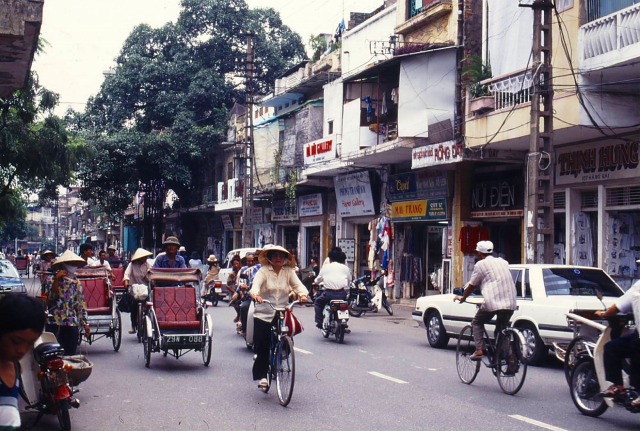
The most well-known Vietnamese director in Japan is Trần Anh Hùng. His lyrical and aesthetic works such as Mùi Đu Đủ Xanh (1993), Xích Lô (1995) and Mùa Hè Chiều Thẳng Đứng (2000) won various awards in international film festivals, including the Cannes Film Festival. Lately in 2010, he worked on Haruki Murakami’s bestselling novel, Rừng Na Uy (Norwegian Wood) which got public attention in Japan. Since he moved to France when he was a child, he is like a foreign director based outside of Việt Nam. Actually, his name is barely heard in Việt Nam.
Nowadays, there are local movie directors in Việt Nam and their activities are becoming notable. One of the directors is Charlie Nguyễn who is also a popular scriptwriter and producer. As a Vietnamese American, he has created various domestic films. He used Thái Hòa, a popular comedian in Để Mai Tính 2 (2014), a slapstick comedy film on gay couple’s romance. Despite of the ethical arguments on its scabrous story, it became a mega hit, making over 90 billion dong (approximately 450 million yen) at the box office.
Although a critic, Phan Gia Nhật Linh who studied filmmaking in the USA is also a noticeable person. He created a remake of the Korean film with a popular singer, Miss Granny (2014), Em Là Bà Nội Của Anh (I’m Your Grandmother) (2015). The film made 100 billion dong (approximaltey 500 million yen) at the box office in two months after its release. It hit the second highest revenue in the history of Việt Nam. The film has been selected as one of the entries in Japanese film festival.
Phan Đăng Di directed Bi, Đừng Sợ (2010), a film about an ice seller and his family which won an award at the Busan International Film Festival. In recent years, many talents are starting to bloom in the Vietnamese film industry.

Abundant Cinemas, Movies Are the Entertainment of Common People
As mentioned above, the Vietnamese film industry has gradually matured. Not only the creators’ talents, but also the environment to watch movies, i.e. the cinemas have been making a great steps and improvements year after year.
For instance, before 2000, there were few large-scale cinemas in Việt Nam and the numbers of films shown at cinemas were scarce. Overseas films, mostly Hollywood movies were shown there, but most of them were dubbed. It was natural to have one voice actor play the all casts.
In Việt Nam at present, there are approximately 140 cinemas and 50 of them are owned by foreign companies. Among them, CGV and Lotte Cinema of South Korea are vigor. Especially CGV which entered Việt Nam in 2011, has opened cinema complexes with a number of screens in a large shopping malls. They play an important role in the diffusion of the recent entertaining movies. Their cinemas are modern with the latest equipment such as 4DX and IMAX. They compare favorably with those in Japan. Actually, most of the cinemas are much more comfortable. The movie ticket for one movie is 100,000 dong (approximately 500 yen). A college graduate salary is about 350 dollars, so considering the prices of commodities, the ticket fee is set to be “not cheap, but affordable.” This has triggered the increase of the number of audience.
Moreover, most of the screened films are horror, comedy and romance, the popular genres in Việt Nam. 80% of them is from Hollywood, 15 to 20% is Vietnamese films and the Chinese and Hong Kong movies follow. Unfortunately, Japanese movies are rarely shown, but animation films are different. The movie version of Doraemon is a popular contents and its latest movie is shown every year. Thanks to the efforts of the cinemas, the industry’s income is robust. The Vietnamese box office revenue for FY2013 is approximately 57 million dollars, and in FY2016, it is expected to exceed 100 million dollars.
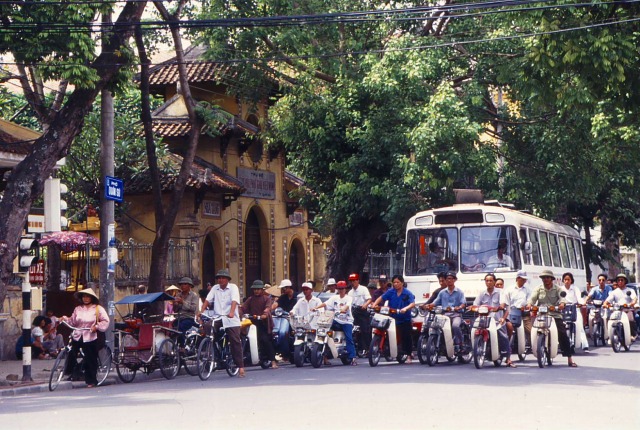
Thus, the Vietnamese film industry is still developing with huge potential. In the past, when there were only state-owned film production companies, movies were used for the government’s propaganda and the audience preferences were never taken into consideration. However, in 2015, Hi was established. About 50 firms, including the major film production, Galaxy are the member of this association. Its objective is to create good quality films with revenues and diffuse the Vietnamese film in and out of Việt Nam.
The film industry of Việt Nam has finally gone beyond the framework of documentary films, and are able to create films of various genres. The industry is still in the predawn of its history. Having about 160 films newly created each year, the industry has drastically opened its doors. It will not be long before we will able to see the good Vietnamese movies created by the young directors not only in Việt Nam, but anywhere in the world.
Column by 杉田憲昭(NORIAKI SUGITA/GRAFICA CO., LTD.)
【トレーラー一覧】
- 「Vĩ Tuyến 17 Ngày và Đêm 」 ※トレーラーではありません
- 「Mùi Đu Đủ Xanh」
- 「Xích Lô」※トレーラーではありません
- 「Mùa Hè Chiều Thẳng Đứng」
- 「Để Mai Tính 2」
- 「Em Là Bà Nội Của Anh」
- 「Miss Granny」
- 「Bi, Đừng Sợ」
Emerging Nation, Việt Nam Enjoys Its Economic Growth
Emerging Nation, Việt Nam Enjoys Its Economic Growth
Recently, you will see Việt Nam covered in Japanese television and magazines in many occasions. Although you have never been there, you should have encountered the image of a lady in a Vietnamese folk costume, Áo Dài, wearing a braided conical hat, Nón Lá with her hair blown in the wind before. Also, Vietnamese national food, the rice noodle Phở can be seen in instant noodles at supermarkets and convenience stores. Partially owning to that, the recognition of Việt Nam in Japan has gradually heightened. In 2003, the number of annual Japanese visitors to Việt Nam was around 300,000. The recent number drastically increased, almost hitting 700,000. With the increase of the number of tourists, its exposure in Japan has also grew. The Japan- Việt Nam diplomatic relationship celebrated its 40th anniversary in 2013. The ties between Japan and Việt Nam is becoming closer and deeper.

The direct flight from Japan to Việt Nam takes about 6 hours. Việt Nam is an elongated country which is one of the Southeast Asian nations. Its total length is almost the same as Japan’s main island. It consists of three major regions. In the north, there is the capital, Hà Nội, in the south, there is the largest economic city Thành phố Hồ Chí Minh, and in the center, there is resort developing city, Đà Nẵng. Việt Nam was a socialist state, but in 1986, by adopting Đổi Mới, its economic renovation program, it has shifted its economy to an open market oriented policy. It was quick to promote economic development among other French colonies in the Indochina. Urban areas such as Hà Nội and Hồ Chí Minh, bristle with modern towering buildings. Recently, like other Southeast Asian nations, many countries including Japan, have been increasingly expanding their business as the China Plus One nation. Foreign affiliated large cinema complexes have been built. Like other industries, the film industry is enjoying the significant growth.

Outstanding Creator of Documentary Films Engraving the History of Conflicts
It is said that the history of Vietnamese film started during the French colonial days which started at the end of 19th century to the mid of 20th century. The first local film production company in Việt Nam was established in 1920s. It produced several documentary films on ritual rite and ceremony of the Nguyễn dynasty, the last ruling family. However, the then film industry was still immature. It was the days of the turbulent with the Second World War II (1939- ) and the anti-French movement and the Indochina War (1946 – ). Since then, the films tended to be created for propaganda to raise the morale of the people.

Vietnamese film industry faces a big turning point in 1953. Under the instructions of the first president of the Democratic Republic of Vietnam (North Vietnam / Việt Nam Dân Chủ Cộng Hòa), Hồ Chí Minh, the first state owned film production company was established. It mainly produced documentary films as well. Many films were produced on the political propaganda and revolutions and strife by the common people. A number of films produced for nation’s prestige were filled with efforts. One of the films was Vĩ Tuyến 17 Ngày và Đêm (1972). Hải Ninh directed this film and portrayed the people fighting for freedom and the unification of the North and South. One after another, films that received high evaluations afterwards were produced during this period. At that time, the Vietnamese documentary films were considerably ahead of those of other nations.
